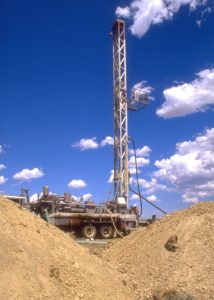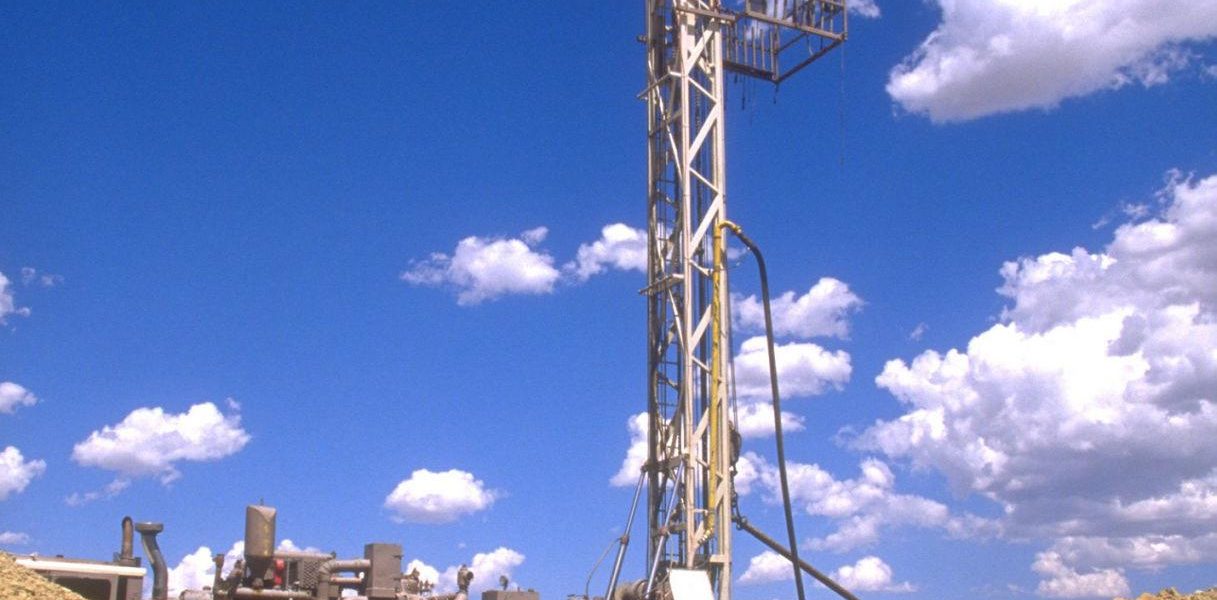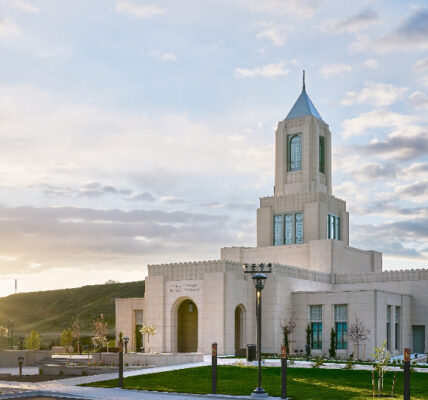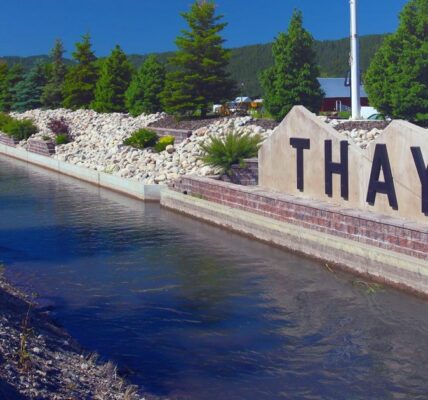By Mara Abbott
Buffalo Bulletin
Via- Wyoming News Exchange
BUFFALO — It was the worst possible answer to Johnson County’s $11 million question.

New bankruptcy filings revealed that Moriah Powder River LLC, which initiated its Chapter 11 case on Oct. 31, owes the county $11.15 million in unpaid ad valorem mineral taxes – a debt listed in county records as belonging to Moriah’s operator, Carbon Creek Energy.
A bankrupt debtor means it is less likely than ever that the county will collect all of the money it is owed.
“I would say there is no chance (of full repayment),” said economist and former state legislator Mike Madden, noting that the company’s delinquent tax bill may still continue to increase.
County-level taxes are due biannually, 18 to 24 months after the minerals are produced, so the current bout of unpaid taxes dates back to 2016 and 2017 production. Since then, Carbon Creek has continued extracting natural gas unhindered from thousands of Moriah-owned coalbed methane wells throughout the county.
“It’s important to understand that not only are they not paying the taxes from 18 months ago, they’ve been producing right up until (today,)” Madden said. “That’s a year and a half of production plus these back taxes that will never – hardly ever – be paid.”
A bankruptcy filing initiates an automatic stay on collections, meaning that the county and more than 40 other local individuals and businesses – including three county landowners each owed more than $100,000 under surface use agreements – cannot pursue their debts until the case concludes.
“It affects everything,” said County Commissioner Linda Greenough.
The county plans its budget assuming it will not receive all mineral taxes owed, she said. “If we were to go strictly by what we should get, we would be in quite a pickle, because the money just doesn’t come in that way. There’s just no way to put a firm number on what won’t be there.”
Moriah Powder River could be worth a whole sandwich shop’s worth of pickles for Johnson County: The $7.7 million owed last year was 13% of the county’s total earned tax base.
“We’re cautiously hopeful,” Greenough said. “The reality is, we might not see anything.”
The trio of sister companies responsible for more than 85% of the county’s natural gas production so far this year – Moriah Powder River, Carbon Creek and Powder River Midstream – are neatly silo’ed into spheres of ownership: Moriah Powder River owns the leases and the wells, Carbon Creek owns and operates the well production infrastructure, and Powder River Midstream is responsible for the compressors, pumps, and separators that package the gas into pipelines to be shipped downstream.
At the outset, their intricate corporate organization made it difficult to understand exactly how and if Moriah Powder River’s bankruptcy would affect the Johnson County. Carbon Creek was listed as the treasurer’s records as the delinquent taxpayer, and the entire group of companies, and their debts, was acquired by US Realm Ventures II LLC on July 10.
So: If US Realm Ventures owned both the debt and the wells, was it possible that Moriah’s bankruptcy didn’t matter?
A Nov. 20 case filing put that hope to rest. When Moriah Powder River declared bankruptcy, the document explained, it should actually have been called US Realm Powder River.
The new ownership group had asked attorney Martin Plank on July 13 to file the name change with the Wyoming secretary of state, but he did not do so until almost four months later, on Nov. 4.
“Debtor acknowledges the confusion that may arise as a result of the name change so soon after filing bankruptcy,” the Nov. 20 filing read.
“The entire structure of it was a surprise, really,” Greenough said. “It seems like we come up with some new information weekly that we weren’t particularly privy to, and you wouldn’t be unless you were in on the company management. It’s been a wild ride with these folks.”
Now, with the flourish of a newly re-branded recording artist, it is officially the case of “US Realm Powder River LLC, formerly known as Moriah Powder River, LLC.”
In a bankruptcy, creditors are paid according to the order in which they filed their liens. Under current Wyoming statute, however, counties cannot file tax liens until taxpayers are actually delinquent. The deferred payment schedule used for ad valorem taxes means that delinquency cannot even occur until more than a year after the minerals are extracted. As a result, counties end up at the back of the line, often empty-handed, as bankrupt companies turn out their pockets.
A 2019 legislative bill, Senate File 118, will change that by giving counties greater priority by automatically attaching tax liens to minerals upon extraction, but the measure does not take effect until 2021.
“Not only are we not first, but we’re not second or third either, as it turns out,” Madden said.
In this case, first priority goes to US Realm Powder River’s secured creditor, West Texas National Bank, which holds the remainder of the $210 million originally lent in 2015 to finance the purchase of the 6,800 wells and their associated mineral leases and infrastructure from Anadarko and WPX Energy that would be divvied up into the newly-formed Moriah Powder River, Carbon Creek and Powder River Midstream.
According to US Realm Powder River’s bankruptcy filings, more than $80 million of that debt remains and must be paid to the bank before any other creditors see a dime.
“Once a company goes into bankruptcy, particularly as taxes are given a junior right, you’re fighting an uphill battle,” said University of Wyoming economist Robert Godby. “It’s pretty tough times in the gas industry right now and the odds (of nonpayment) are therefore higher than they would be otherwise. On average, the odds are not great to begin with – there have been a lot of serial bankruptcies.”
Generating sustainable profits could prove difficult for US Realm Powder River and its arsenal of aging coalbed methane wells.
“Their production is low per well,” Madden said. “That’s a challenge.”
Nonetheless, in a Nov. 22 filing, the company requested permission from the court to use portions of its cash collateral – the money owed to WTNB – to continue operations.
Without it, “the Debtor will not have the funds necessary to pay post-petition expenses, suppliers, overhead and other expenses,” the petition reads, invoking the jobs of 180 local employees in Johnson and Campbell Counties who currently work for Carbon Creek. “(The use of cash collateral) is necessary and appropriate for the continued operation of the Debtor’s business and management and preservation of its assets.”
Under the ensuing agreement, US Realm Powder River must operate on a WTNB-approved budget through at least February 2020.
While that budget does authorize mineral tax payments to the state and counties, it does not require them. The next installment of county taxes will not come due until May 10, so unless the company saves those budgeted funds each month, it won’t necessarily have cash on hand when the time comes.
According to Greenough, the county has attempted to negotiate settlements with Moriah/US Realm Powder River. Even if that effort is successful, Godby cautioned against putting too much faith in a repayment agreement.
“You can talk all about an obligation, but until an obligation is converted to a payment, and you have a check, and you’re running to the bank to cash it before it bounces, it’s all uncertain,” he said.
A November analysis from Godby forecasted a 14% drop in Wyoming’s natural gas revenues by 2022. Across the state, operators have already slowed production in response to persistently low natural gas prices.
“In terms of the market and in terms of prices, we have a very difficult situation,” said Pete Obermueller, president of the Petroleum Association of Wyoming, during an October legislative meeting. “Gas prices are dismal right now. I think the attitude is that every single well produces an unbelievable amount of money, and it simply isn’t true.”
“(Ultra Petroleum is) well managed,” Madden said of one of the state’s biggest producers. Ultra shut down its last Wyoming rig, near Pinedale, in September. “I’m sure they’re having some big-time stress, but what they did is they pulled all the rigs off, and they’re starting to cut. They’re trying to save as much money as they can to avoid bankruptcy, but that’s not what we’re finding with all of the rest.”
Unable to collect tax revenue from the county’s primary mineral producer, the commissioners cite a need to both diversify the local economy and make the most of every penny they’ve got.
“We have all of the advantages,” Commissioner Bill Novotny told the Bulletin several days before the initial bankruptcy filing. “We have great proximity to the two interstates. We have fiber, we have great connectivity. We have relatively inexpensive energy costs.… What we have been unable to do is find either something that’s a value-add to the extraction items that get shipped down here or diversify beyond a stable tourism industry and some agriculture that is shrinking.”
“We have known for a long time, since about 2016 when this mineral industry went bust within the state,” Greenough said. “We knew that we had to live within our budget without planning for large oil and gas contributions. And we’ve tried to do that. We’re gonna have to tighten our belt yet again. Times are just going to be tough. We need to find a new normal.”







